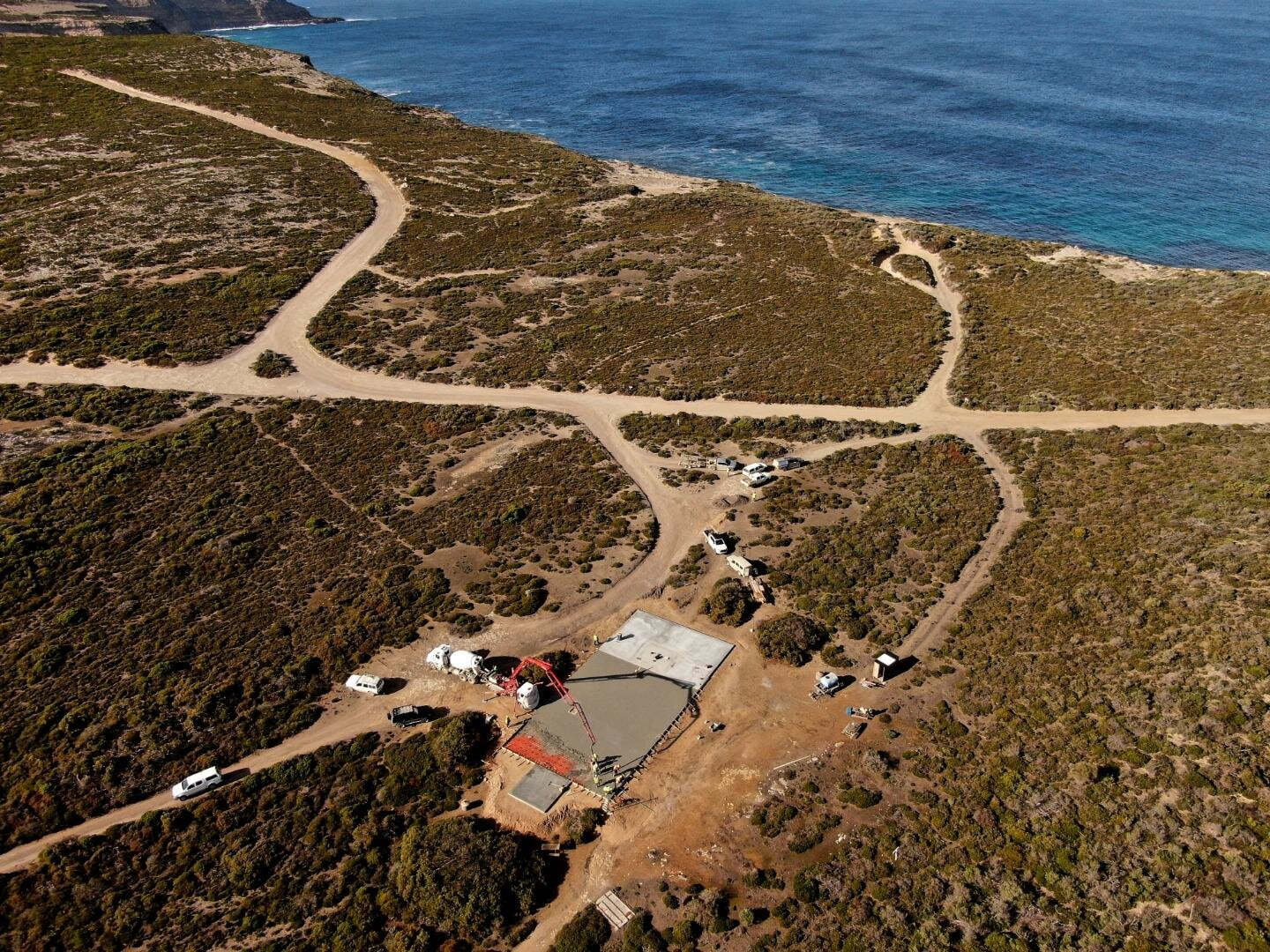Adelaide space tech Southern Launch has been granted a second launch site licence from the Commonwealth for a facility 680km west of the capital.
The approval allows the company to conduct sub-orbital rocket testing as it builds towards larger orbital rocket launches and a state of the art permanent launch facility.
Announced by the government on Wednesday, the licence is the second for Southern Launch, which received the first ever Australian launch facility licence in March for its Koonibba test range.
Southern Launch chief executive Lloyd Damp said the licence will allow the company to launch three rockets this year to collect safety data to inform future launches. It also marks a major step towards a permanent large scale launch facility in Australia which will act as a “centre of gravity” to attract broader parts of the space economy, he told InnovationAus.

“By developing a launch capability we will then attract rocket assembly, we will attract rocket manufacturers, be it the development of domestic capabilities or the attraction of international companies to Australia,” Mr Damp said.
“Bringing in mature design and capability and investment into the space is a huge win.”
The newest licence is for a sub-orbital launch facility in Whalers Way west of Adelaide. Southern Launch is now working with the Australian Space Agency for launch permits for three test rockets to be launched by the end of the year to collect noise and vibration data.
The licence required extensive work with a “long list” of agencies and regulators from various levels, amid some concerns from local residents about the impact of the facility and increasing launches.
Southern Launch, which now holds the only two launch facility licences in Australia, is cautiously working towards orbital launches from the site.
“We want to take an incremental approach to developing a space capability. Our [launch] pad one down at Whalers Way is as small as as we’ve been able to make it. And likewise, the rockets we’re proposing to use are as small as we can use to get the desired outcome,” Mr Damp told InnovationAus.
“That just means that it reduces risk and increases our ability to control all the variables that are involved in a space launch event. And it gives us a great possibility of achieving the outcomes we are after, which is measuring that noise and vibration.”
Minister for Industry, Science and Technology Christian Porter said in a statement that the global space launch services market was expected to reach US$29.6 billion by 2027.
“Australia has a unique opportunity to be part of this exciting and growing industry, given our geographical advantages which make us an attractive destination for launch activities,” he said.
Earlier this month, Mr Porter announced the government would defer the controversial fees it plans to charge local space companies for launches for one more year, following warnings from the local sector the fees would make Australia uncompetitive in the global space race. He also revealed Australia intends to negotiate a treaty with the US for its expanded involvement in the local sector.
Mr Damp said the fees should be scrapped altogether for what remains an “embryonic industry” in Australia but acknowledged the sector needs to also prove the wider value it provides.
Australia will follow some of its western allies’ lead and negotiate a bilateral treaty known as a Technology Safeguards Agreement with the US. The treaty would allow much more American investment and access to sensitive technology and data into the local market.
Typically TSAs, which the US already has with the UK, New Zealand and Brazil, take years to negotiate and Australia is yet to officially enter talks. Mr Damp said he hopes negotiations can be expedited by drawing on allies’ TSAs to capture the current momentum in Australia’s space sector. But he warned the deal must not allow for US companies to effectively use Australia as a launch pad and not develop the local sector.
“The last thing we want to do, I believe, is [for] Australia to sign on to an agreement that restricts Australia’s ability to develop a sovereign space capability… My hope is that even if it takes a little bit longer to negotiate and agree, that the TSA that Australia gets helps develop the rocket manufacturers here in country, as well as the broader access to American technology.”
Do you know more? Contact James Riley via Email.

